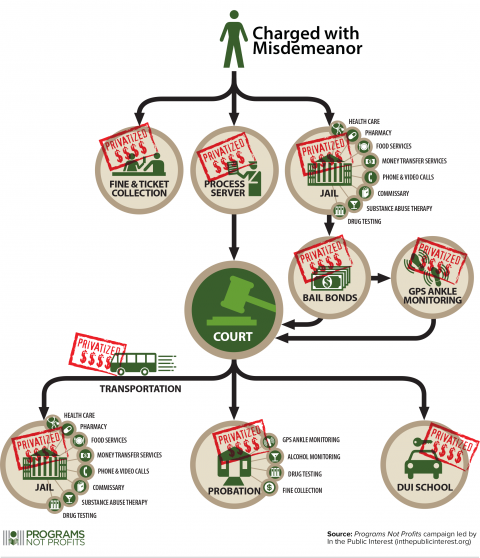In a statement and letter, the DOJ shed light on what the agency calls a “bureaucratic cover charge for the right to seek justice,” but also on another alarming practice: the use of for-profit companies to collect fines and manage probation.
On top of fines collected on behalf of courts, many private probation companies charge their own fees for things like drug testing and supervision. If people can’t pay these fees—which can be as high as the fines themselves—they can be sent back to jail.
According to the DOJ, these companies have a “direct pecuniary interest in the management or outcome of a case.” And this interest is real. In October of last year, a private probation company left the state of Alabama after a nonprofit legal organization, Equal Justice Under Law, filed lawsuits accusing it of using the threat of jail to collect high fees.
As we revealed earlier this year, probation is just one of the many areas of our criminal justice system where private companies profit. Companies perform familiar functions like prison operation and immigrant detention, and even GPS ankle monitoring and residential reentry.
In all of these areas, including probation, these companies profit more when more people are in the system.
The DOJ’s effort is a significant step in righting our criminal justice system, which too often relies on policing and incarceration to “heal” wounds inflicted by much deeper causes. It also highlights the role of the private corrections industry in making that system anything but just.
Donald Cohen is the founder and executive director of In the Public Interest, a national resource and policy center focusing on privatization and responsible contracting.


Spread the word